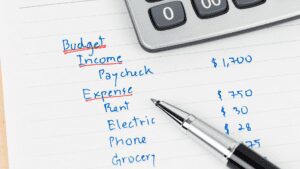 Introducing Do-It-Yourself Credit Repair: Taking Control of Your Financial Future
Introducing Do-It-Yourself Credit Repair: Taking Control of Your Financial Future
We’ve all encountered those TV advertisements claiming to magically fix bad credit with a single phone call. However, the truth is, you don’t need to rely on anyone else to repair your credit. Empower yourself to take charge of your financial situation with these simple steps!
- Assess Your Starting Point:
Begin by reaching out to all three major credit bureaus, namely Experian, TransUnion, and Equifax, to request free copies of your complete credit reports. You can access these reports once a year without any cost. Alternatively, you can utilize platforms like Credit Karma or Credit Sesame to view your reports online for free at any time. Once you have your credit reports, evaluate your overall credit standing. Credit scores range from 300 to 850, and a score around 700-740 is generally considered “good.”
- Dispute Inaccuracies:
While errors in credit reports are not common, they can occur. If you happen to spot any inaccuracies that are negatively affecting your credit, take prompt action to address them. Make copies of your report and highlight the errors, then gather evidence to support your case. Bank account statements are commonly used as evidence, so be sure to make copies of those as well. Craft a letter to the respective credit reporting agency, explaining the mistake, and attach the highlighted report along with your evidence. Sending the letter by certified mail will ensure you have a record and can track the bureau’s 30-day response window. Here are the contact details for each bureau for your convenience:
– Experian: 1-888-397-3742
– TransUnion: 1-800-916-8800
– Equifax: 1-800-685-1111
- Stop Financial Leakage:
After resolving any inaccuracies on your credit report, focus on living within your means. Repairing bad credit requires adhering to three crucial principles:
– Pay all bills on time.
– Reduce debt, especially credit card debt.
– Avoid applying for new credit.
To get started, create a budget by reviewing your past year or two of tax returns to understand your actual annual income. Subtract your monthly expenses and estimate other monthly spending habits, setting limits for variable expenses like groceries, gasoline, and entertainment. Aim to cut unnecessary costs to free up funds for credit repair.
Ensure timely bill payments going forward; this is the most crucial factor in improving your credit score. Next, concentrate on paying down credit card balances and other outstanding debts. Refrain from making further charges on your cards, if possible, and focus on clearing your balances. Avoid closing credit card accounts, as your available credit also affects your credit score positively.
Lastly, resist the temptation to apply for new credit. Every time you do so, it results in a “hard inquiry,” and credit bureaus consider inquiries from the past two years. Multiple inquiries can negatively impact your credit score, particularly if your score is already below average. Instead, patiently hold off on new credit applications until your credit is in better shape.
Taking these steps into your own hands will empower you to repair your credit with confidence. Remember, you can do it, and we’re here cheering you on every step of the way!
The recommendations contained in this article are designed for informational purposes only. Essential Lending DBA Wise Loan does not guarantee the accuracy of the information provided in this article; is not responsible for any errors, omissions, or misrepresentations; and is not responsible for the consequences of any decisions or actions taken as a result of the information provided above.
More information on Installment Loans and how they work in your state:











